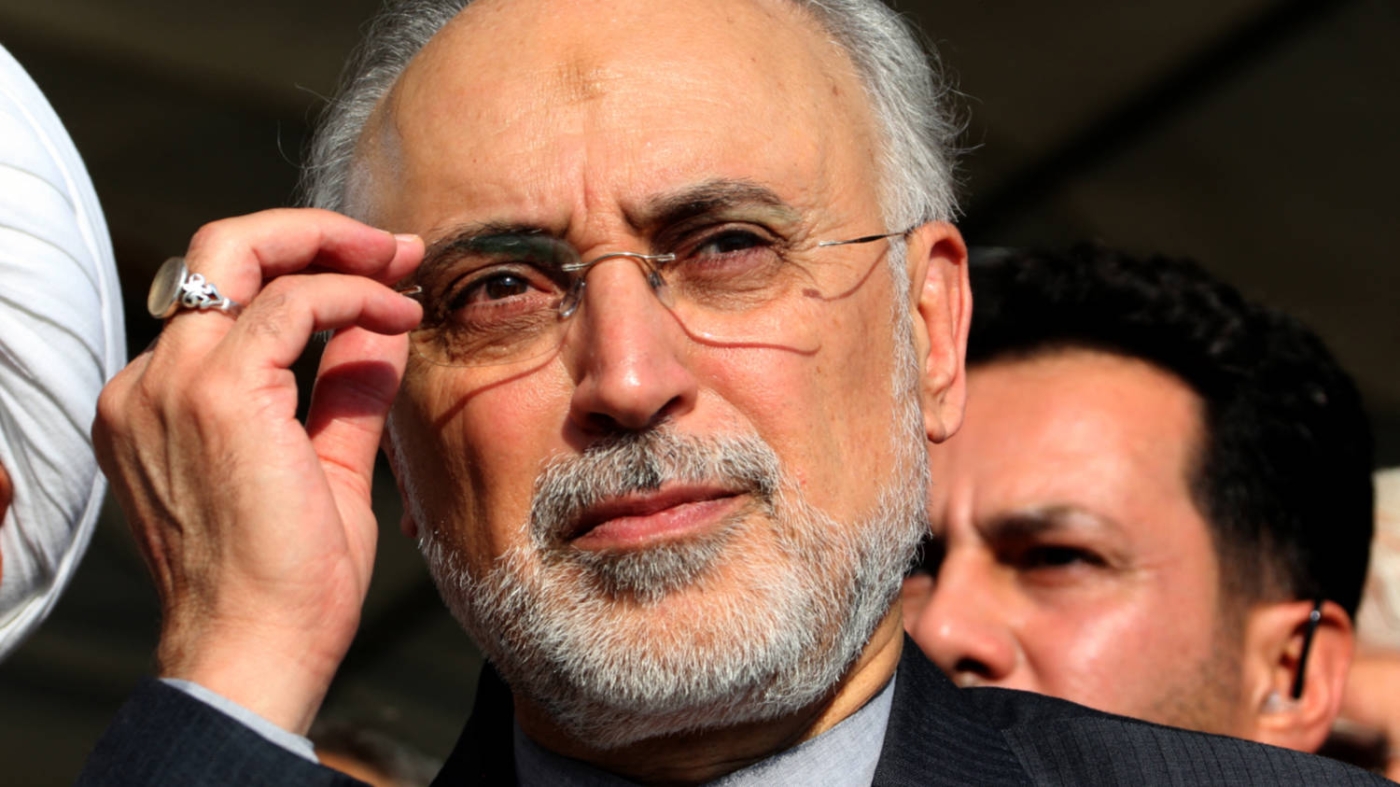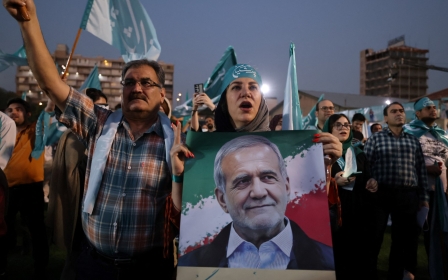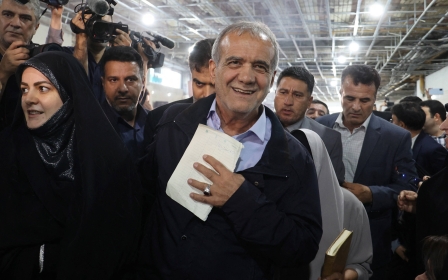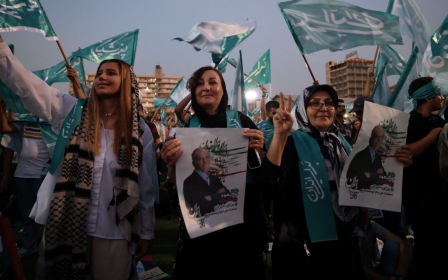Iran: The four men in the running to become the next foreign minister
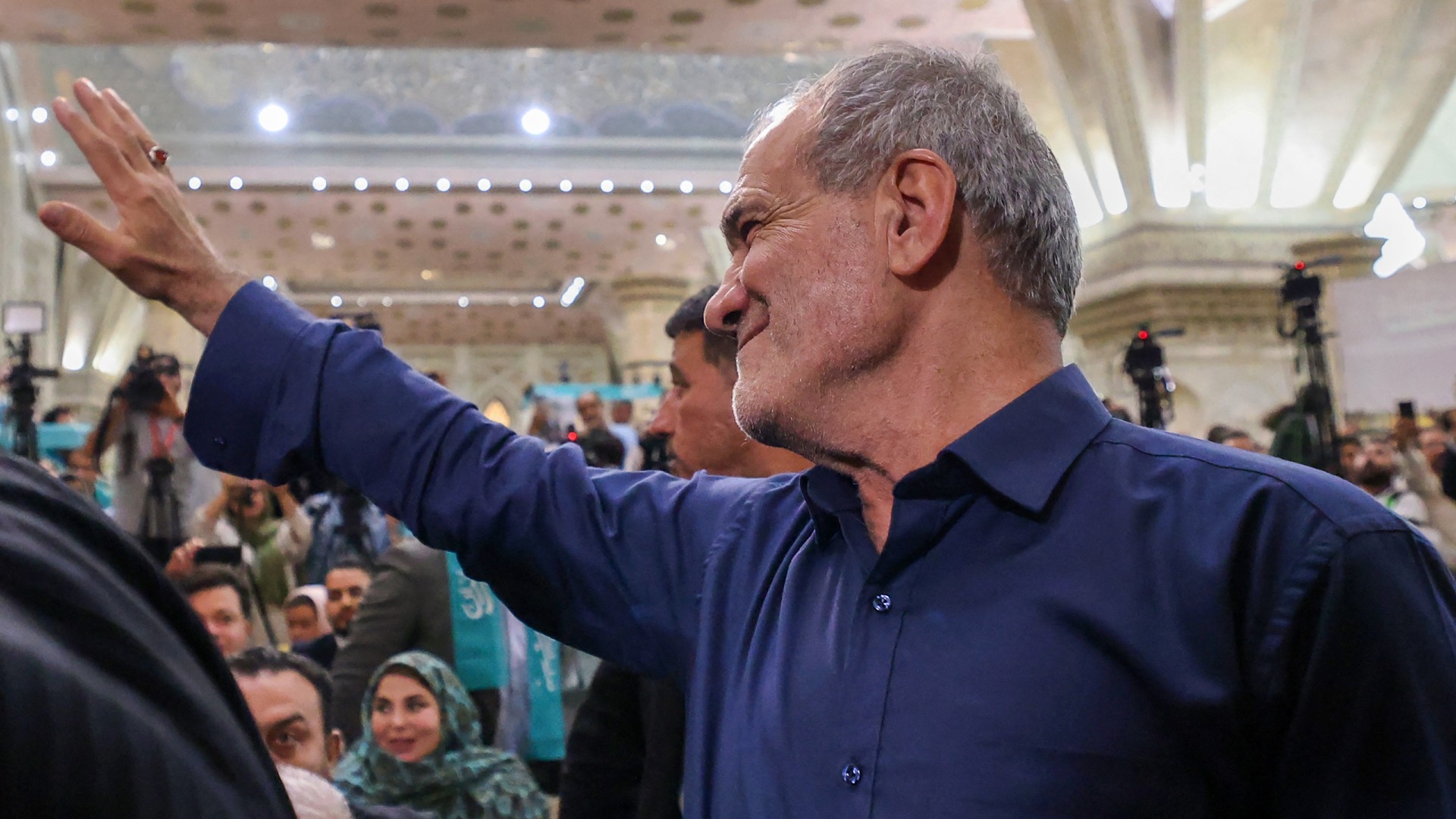
The victory of reformist candidate Masoud Pezeshkian in Iran’s presidential election has prompted speculation that Tehran will take a new approach to foreign affairs and perhaps dial down tensions with Washington.
Much, however, depends on who Pezeshkian will pick as his foreign minister.
The appointments of Iran’s foreign, intelligence, culture, interior and defence ministers are all made with the prior approval of Supreme Leader Ayatollah Ali Khamenei.
The foreign ministry is considered one of the most crucial organs of state, particularly as Pezeshkian ran a campaign promising greater engagement with the world.
Three sources within the ruling establishment and close to the incoming administration have told MEE that there are currently four candidates to head the foreign ministry.
New MEE newsletter: Jerusalem Dispatch
Sign up to get the latest insights and analysis on Israel-Palestine, alongside Turkey Unpacked and other MEE newsletters
Notably, Mohammad Javad Zarif is not among them. Zarif, who was foreign minister under moderate president Hassan Rouhani, was a prominent figure in Pezeshkian's election campaign.
Yet he is disliked by senior members of the Islamic Republic's ruling establishment, and a conservative-controlled parliament would not allow his appointment.
Pezeshkian is expected to announce his government at the end of the month. Middle East Eye details the four men sources say are being discussed as Iran's new foreign minister:
Ali Akbar Salehi
The MIT graduate has served as foreign minister before, under Mahmoud Ahmadinejad from 2011-2013.
He was also deputy chief of the Organisation of Islamic Cooperation, was Tehran's representative to the International Atomic Energy Agency, and is the former head of the Atomic Energy Organisation of Iran.
Salehi possesses four significant qualities: the first is he is trusted by all political factions and the supreme leader.
The level of trust Khamenei and the establishment have in Salehi can be seen in the way he was granted permission to negotiate with the United States a decade ago.
Salehi is the only man who managed to get permission from Khamenei to conduct secret direct nuclear talks with the US, paving the way for the 2015 nuclear deal, known as the JCPOA.
He managed this despite opposition from Saeed Jalili, the ultraconservative who was then secretary of the Supreme National Security Council and more recently ran against Pezeshkian in the election.
Second is his proven ability to come up with new solutions.
Salehi played a pivotal role in the nuclear deal negotiations, especially when then foreign minister Zarif returned from a trip to Munich in 2014, saying talks had reached a "dead end" on technical and centrifuge issues.
Ali Larijani, who was parliament speaker, then proposed inviting Salehi to join the negotiation team. Salehi's initiative and negotiation skills broke the deadlock, paving the way for the deal with the US, UK, France, Russia, China and Germany.
Third, according to a senior conservative source, Salehi’s non-partisan nature means he can gain approval from the conservative parliament.
And fourth, his background in the Organization of Islamic Cooperation and his fluency in Arabic suggest he can foster good relations with Arab countries.
Majid Takht-Ravanchi
Majid Takht-Ravanchi has been Iran's ambassador to the UN and Switzerland, a nuclear negotiator and political director of the president's office under Rouhani.
Three things make him stand out.
First, he is a highly specialised and low-profile figure. Second, he was a negotiator in the 2013 secret talks with the US, involving William Burns and Jake Sullivan, who are now the director of the CIA and the national security adviser, respectively.
His third asset, according to the senior conservative source, is that his personality and non-controversial reputation mean Takht-Ravanchi has a good chance of securing approval from parliament.
Takht-Ravanchi's time as ambassador to the UN is seen as successful, especially as it came during the challenging period of Donald Trump's "maximum pressure" campaign against Iran. It has also drawn favourable comparisons to Zarif's successful time in the post.
Abbas Araghchi
Abbas Araghchi has worked in the foreign ministry as its deputy political director and a nuclear negotiator. He served as ambassador to Japan and is currently secretary of the Strategic Council on Foreign Relations.
Araghchi is well known to the West and is viewed positively.
However, he might struggle to obtain a vote of confidence from the parliament, which includes many anti-nuclear deal figures.
Araghchi has many enemies within the conservative camp. He has been repeatedly attacked for being too flexible in talks with the US by principlists, also known as hardliners, including the influential Kayhan newspaper, whose editor is appointed by the supreme leader.
Araghchi has attempted to counter this narrative, pointing to an anecdote in US negotiator Wendy Sherman's book about talks with Iran bringing her to tears.
"Give me an example of a senior American diplomat and deputy foreign minister crying during negotiations," he told state TV.
Mehdi Sanaei
Mehdi Sanaei is a university professor and former member of parliament, where he was on the National Security and Foreign Policy Commission.
Sanaei is best known for his time as Iran's ambassador to Russia, when he facilitated several cooperation agreements over Syria, acquired the Russian S-300 air defence system and boosted economic relations.
A specialist on Russia and the Caucasus, Sanaei is fluent in Russian. He also appeared in the 2024 presidential race as a foreign policy adviser to Pezeshkian.
Sanaei's wife, Zainab Younisi, is the daughter of Ali Younisi, the intelligence minister during reformist Mohammad Khatami's tenure as president.
Middle East Eye delivers independent and unrivalled coverage and analysis of the Middle East, North Africa and beyond. To learn more about republishing this content and the associated fees, please fill out this form. More about MEE can be found here.


